Topics at the Allianz Center for Technology:
Transport of pedelecs
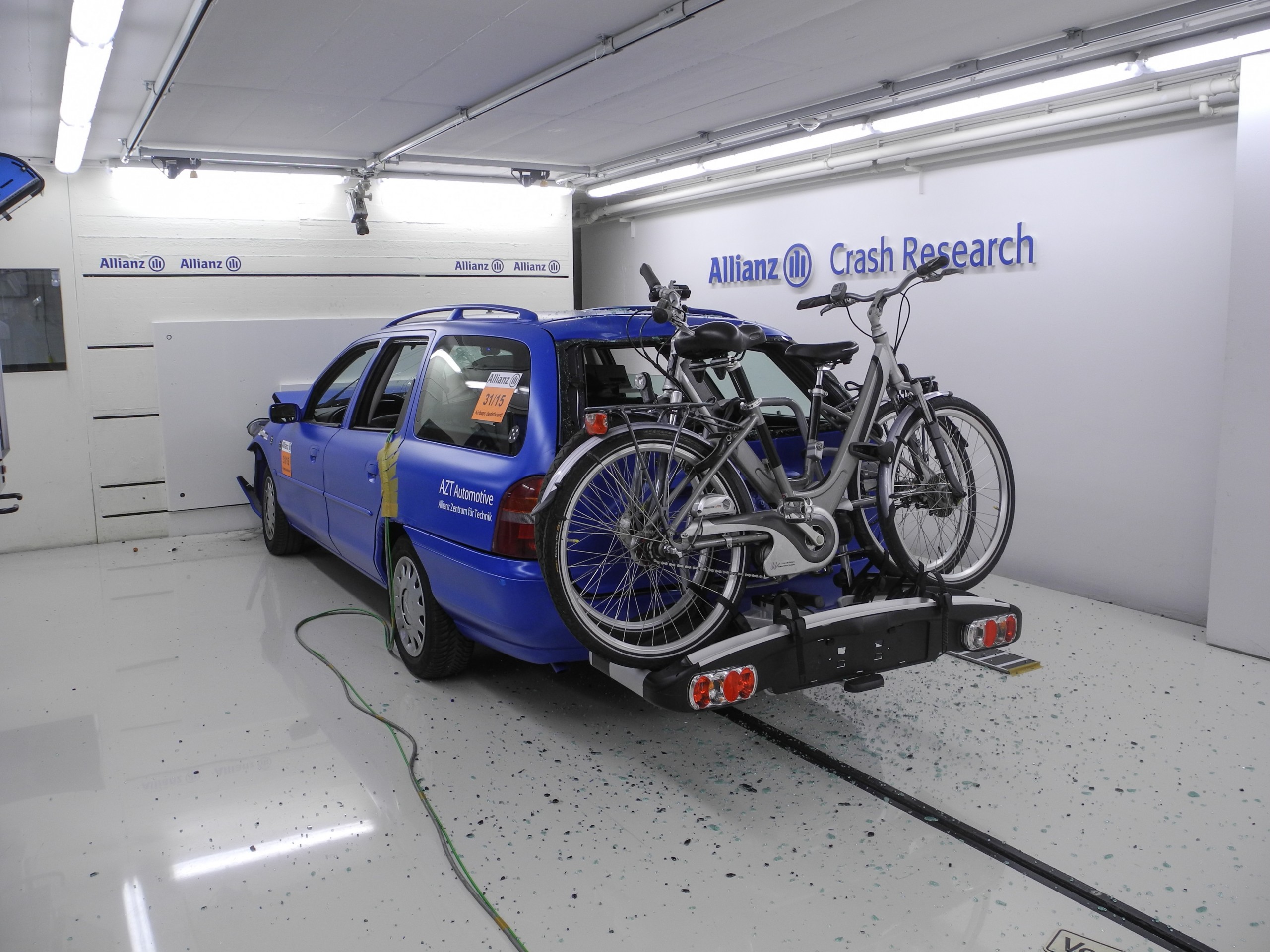
July 2018
The key findings of the tests were:
Many standard bike racks available on the market are not suitable for transporting pedelecs due to their heavy weight. The maximum total permissible weight of the rack indicated by the manufacturer must always be observed. This goes for both rooftop racks and models that are attached to the tow-bar.
For rooftop racks the maximum roof load of the car must also be taken into account.
In the tests, the fastening of the pedelecs to the car failed. This caused damage to the bike and the car, even in every day driving situations. So the key factor is not just the total load on the rack, but also the load on each of the rack's holding rails. If an individual holding rail is overloaded, it will break and not be able to hold the pedelec in place anymore.
In a frontal crash test with a rooftop rack, the pedelecs were shot from the roof like bullets, which would pose a serious danger to other road users in the case of a real accident involving pedelecs transported in this manner.
Bike racks that are mounted on the rear of the car are recommended because, in the case of a head-on collision, the pedelecs will be pressed up against the vehicle and are therefore less likely to become detached.
For this reason, AZT recommends that pedelecs be transported on the rear of the vehicle. In addition, you should ensure that the rack and the individual holding rails are designed for the weight of a pedelec before using it to transport them. During any pauses in the journey the rack should be checked to make sure that all fastenings are still intact and that the pedelecs are still securely attached.
The following film gives more information on the tests and the results.
External video
This video is loaded in a YouTube player. This means that Google collects information about your use of the information provided and uses it for analysis and marketing purposes. However, if you would still like to view this video, you must change the cookie settings.
Open cookie settings
Pictures and videos
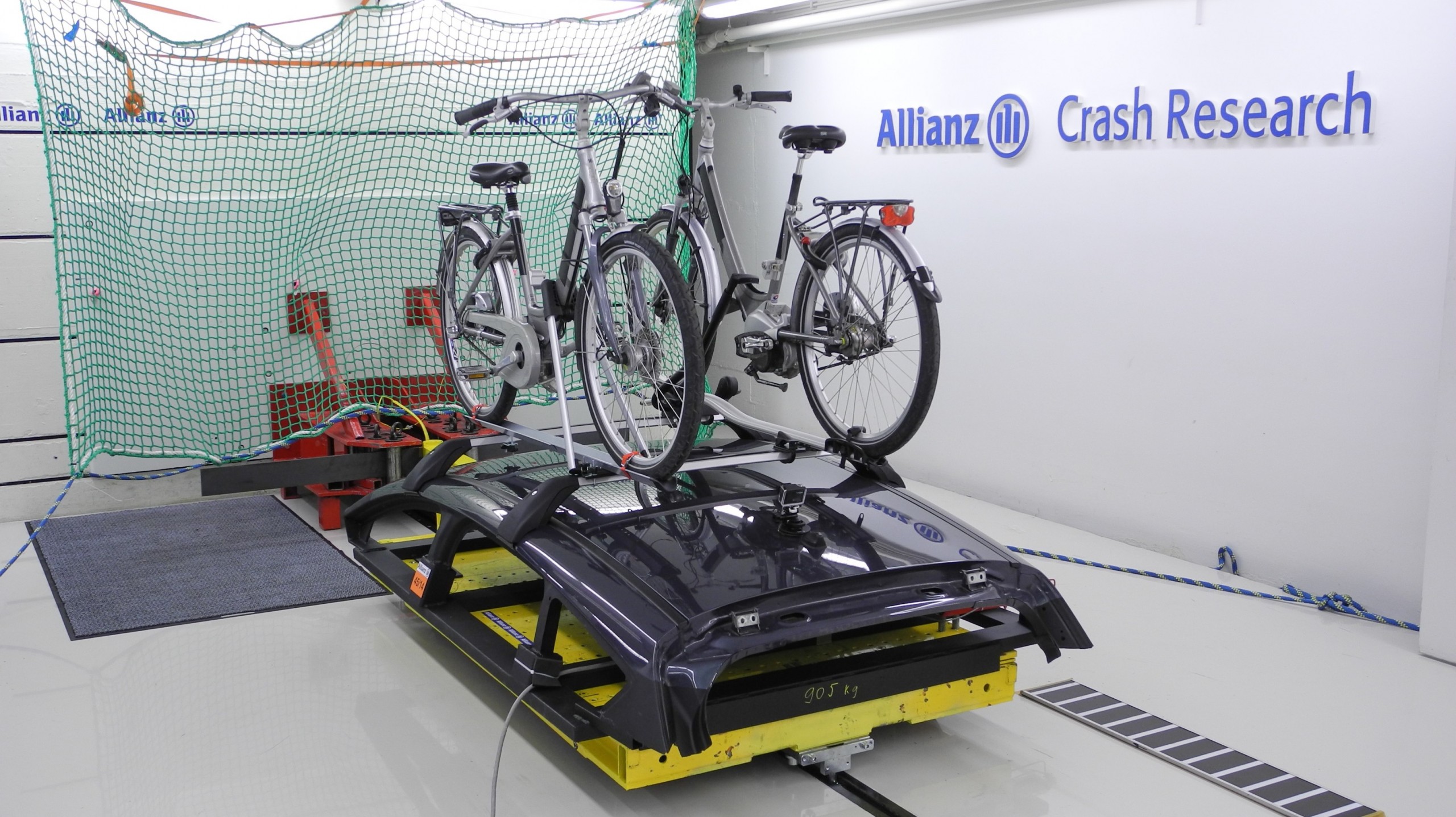
Crash test with pedelecs on the car roof on the test sled
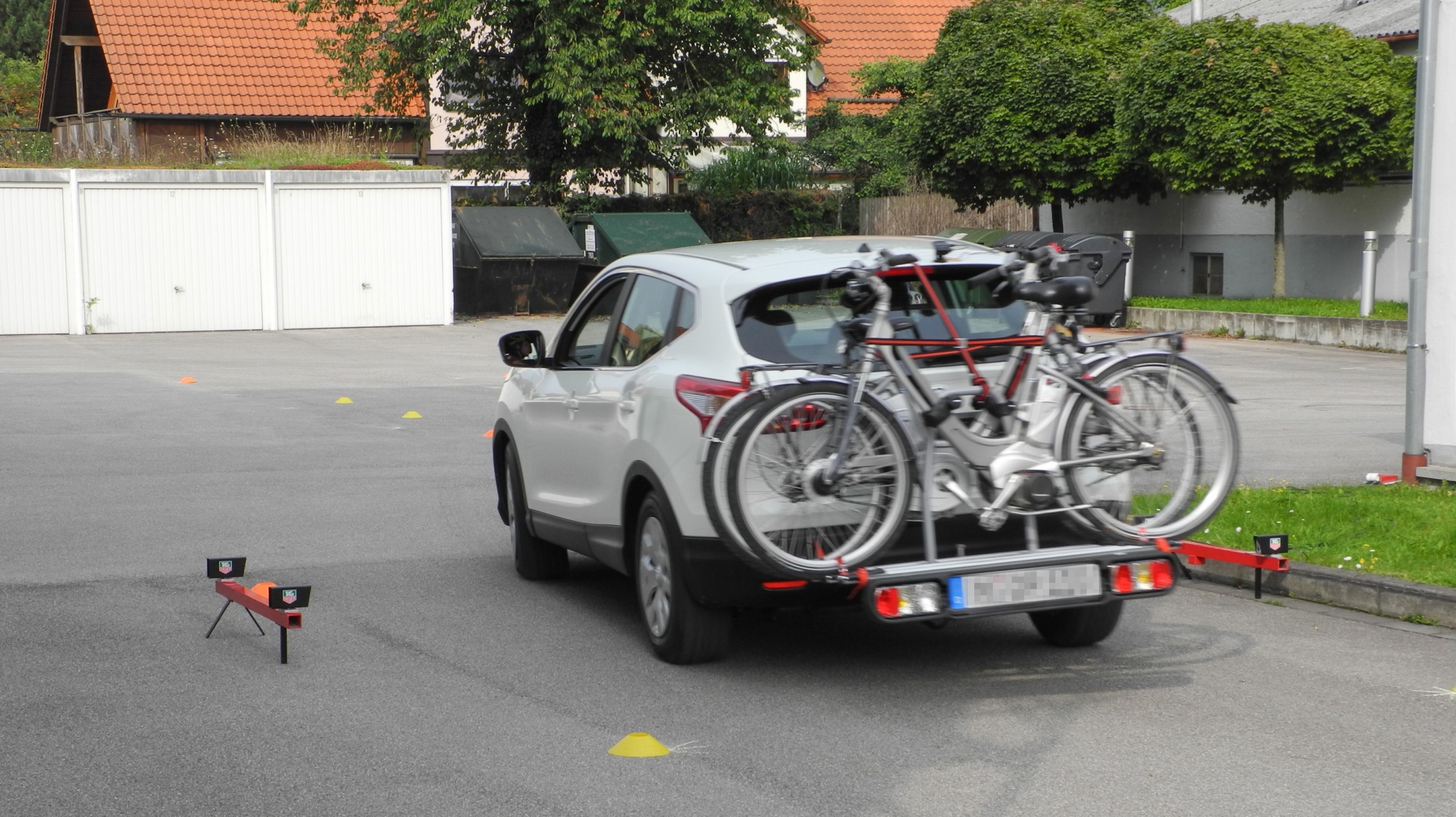
Driving tests (braking and avoidance manoeuvres) with pedelecs on the rear bicycle carrier
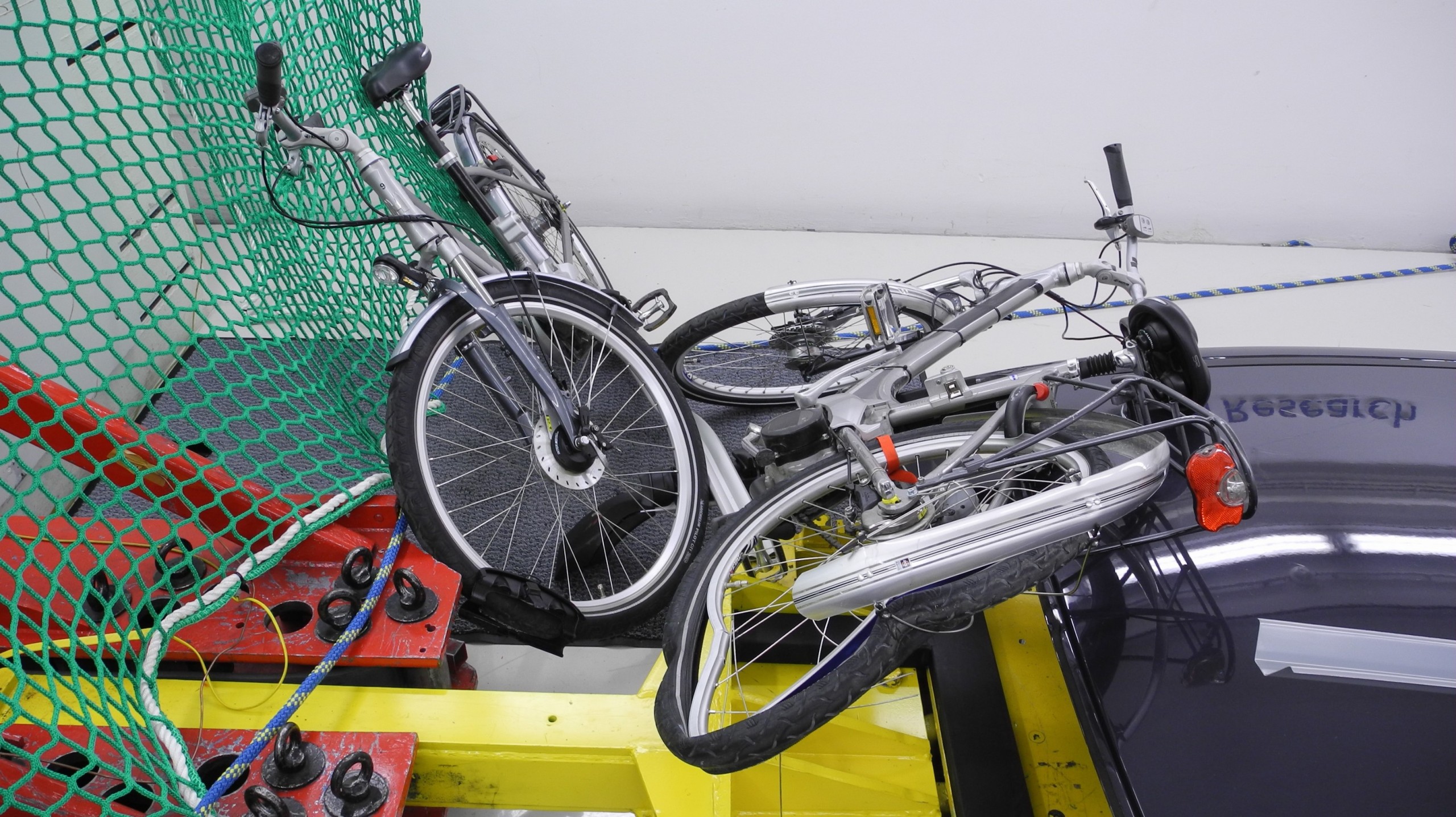
Crash test with pedelecs on the car roof on the test sled
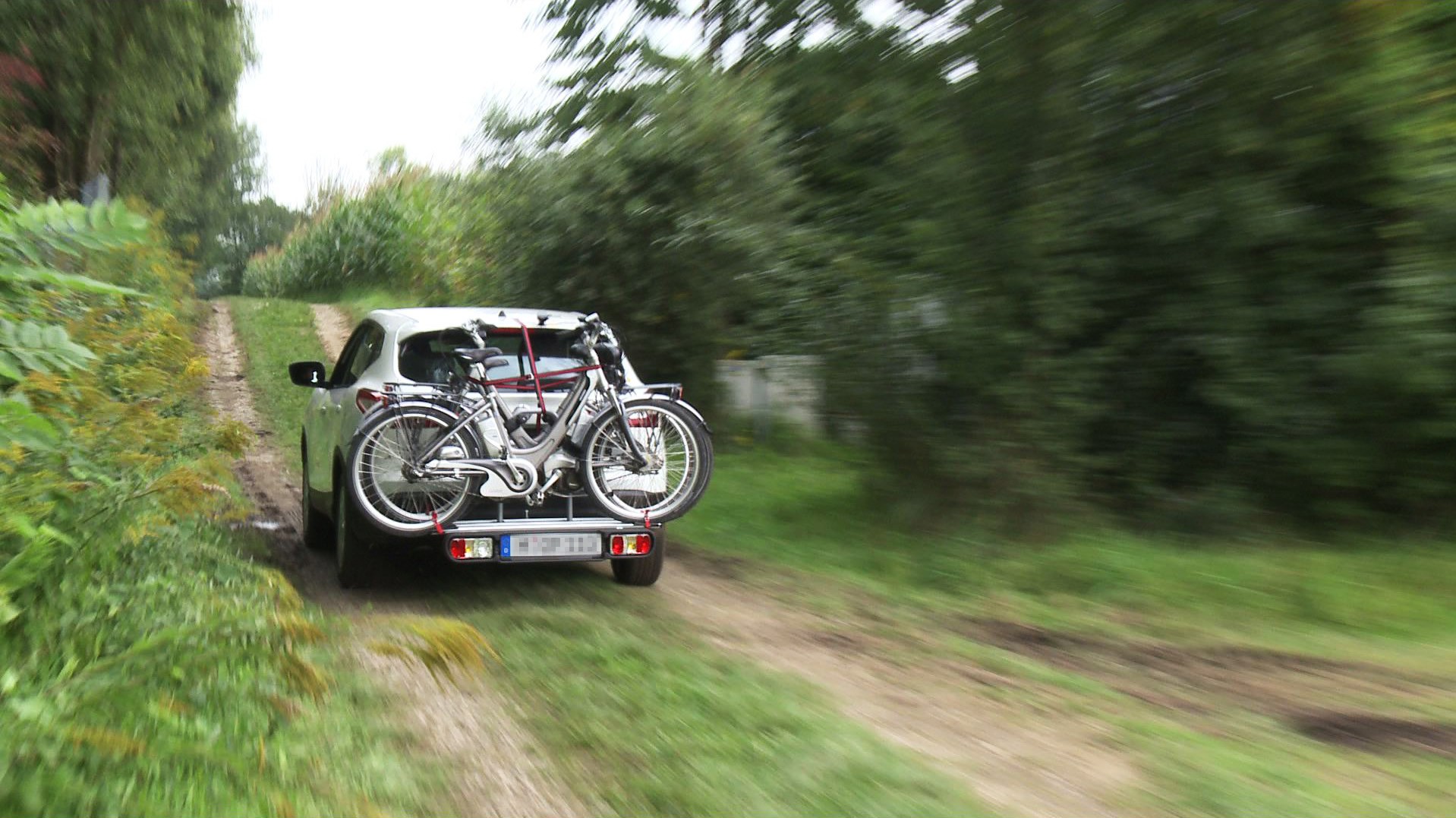
Driving tests (road unevenness) with pedelecs on the rear bicycle carrier